“Song of the South” stands as a cinematic enigma within the vast and celebrated Walt Disney Pictures catalog. This 1946 film, a blend of live-action and animation helmed by directors Harve Foster and Wilfred Jackson, remains Disney’s most controversial motion picture, and notably, it is absent from the Disney+ streaming platform. Even with the now-commonplace content disclaimers Disney utilizes for other older titles with dated cultural depictions, “Song of the South” remains unavailable. Disney CEO Bob Iger articulated this stance as far back as 2020, predating the renewed critical examination of classic films through the lens of racial politics amplified by the Black Lives Matter movement. This definitive decision underscores the enduring sensitivity surrounding the film’s portrayal of the Reconstruction-era American South.
Famously, “Song of the South” served as the inspiration for the beloved Disney theme park attraction, Splash Mountain. This log flume ride, a staple at Disney parks for decades, enjoyed its last theatrical re-release in 1986 before being permanently withdrawn from circulation. In a move signaling a definitive shift, the Splash Mountain rides at Walt Disney World in Florida and Disneyland in California were officially closed in January and May 2023, respectively. Their anticipated successor, Tiana’s Bayou Adventure, themed around the 2009 Disney animated feature “The Princess and the Frog,” featuring Disney’s first Black princess, is set to open, having already launched at Walt Disney World and slated for a Disneyland debut later this summer. This transition marks a significant step in Disney’s efforts to address the problematic elements associated with “Song of the South” while continuing to innovate and evolve its theme park experiences.
Further distancing itself from the film, Disney also made the decision in 2023 to remove “Zip-a-Dee-Doo-Dah,” the movie’s Oscar-winning song, from all parades and park festivities, including the Festival of Fantasy Parade. While the tune remains a familiar and catchy melody for many, its origins within “Song of the South” and the associated problematic context have led to its removal from the Disney Parks soundtrack. The song, deeply embedded in popular culture, now carries the weight of its controversial source material, creating discomfort for both the company and its audience. In the film, veteran actor James Baskett portrayed Uncle Remus, a character rooted in African American folklore of the 19th century, popularized through the published works of Joel Chandler Harris, a white journalist from Georgia. Harris’s interpretations of Deep South African American dialect and storytelling traditions have faced considerable scrutiny in modern times. Despite Uncle Remus’s influence on literary figures like Beatrix Potter, the character and his narratives have largely been excluded from the contemporary American literary canon due to concerns about their representation of African American culture and history.
James Baskett’s performance as Uncle Remus was recognized with an Honorary Oscar in 1948, a poignant acknowledgment as it came shortly before his death that same year, following health issues experienced during the film’s production. Despite the accolades for Baskett and the film’s commercial success at the time, the undercurrent of controversy has always been present.
Film historian Karina Longworth, through her acclaimed podcast “You Must Remember This,” delved into the complex and often obscured history of “Song of the South” in a 2019 episode. Longworth’s exploration illuminated the minstrelsy elements inherent in the film and its unsettling depiction of post-Civil War plantation life and African American workers in Georgia. Her work has contributed to a deeper understanding of the film’s problematic legacy and its place within the broader context of Hollywood’s historical representations of race.
Despite the growing critical reassessment, “Song of the South” maintained its status as a commercially viable property for Disney for many years. Even in recent times, petitions emerged protesting the changes at Disney parks, accusing the company of yielding to contemporary “culture wars” by removing Splash Mountain. However, these appeals have not swayed Disney’s course as the company continues to modernize its theme parks and address concerns about representation and inclusivity. This evolution occurs against the backdrop of Disney’s recent legal and political disputes in Florida, highlighting the complex interplay between entertainment, cultural sensitivities, and corporate responsibility in the modern era.
Below are key aspects to consider when examining the legacy of “Song of the South,” a film that remains firmly outside the accessible Disney media landscape and continues to spark dialogue and debate regarding its place in cinematic history. While Splash Mountain in Tokyo Disneyland still operates, within the United States, the film’s direct presence in Disney parks and streaming services is definitively over, marking a significant shift in how Disney engages with its own controversial past.
From Splash Mountain to Bayou Adventure: Reimagining a Disney Ride
 The exterior of the Splash Mountain attraction is seen at Walt Disney World Resort
The exterior of the Splash Mountain attraction is seen at Walt Disney World Resort
Image Credit: Charles Sykes/Invision/AP
Splash Mountain, the long-standing and much-loved Disney World ride, initially inspired by “Song of the South,” has undergone a significant transformation. Rebranded and reimagined, it now pays homage to “The Princess and the Frog,” a landmark Disney animated film that broke ground by featuring a Black female lead character, Princess Tiana. Disney Parks announced this re-theming initiative in 2021, signaling a clear move away from the problematic source material. Concept art released by Disney showcased Tiana, Naveen, and Louis amidst a vibrant Mardi Gras celebration, envisioning the new narrative and aesthetic direction for the ride. The reimagined attraction incorporates original musical compositions inspired by songs from “The Princess and the Frog,” ensuring a thematic and sonic consistency with its new source material throughout the log flume experience. This transition represents a conscious effort by Disney to retain the thrill and enjoyment of the ride format while aligning its storytelling with more inclusive and contemporary narratives.
Tiana’s Bayou Adventure: Ushering in a New Era
 Concept art for Tiana's Bayou Adventure ride
Concept art for Tiana's Bayou Adventure ride
Following the closures of Splash Mountain across Disney parks in 2023, the highly anticipated successor, Tiana’s Bayou Adventure, is now open at Disney World in Orlando, Florida, since June 28, 2024. The Disneyland version in Anaheim, California, is scheduled to open later in the year. This new attraction, drawing its inspiration from the 2009 film “The Princess and the Frog” and its pioneering Black princess, is currently undergoing previews for Disney employees and invited guests, building anticipation for its official public launch. While maintaining the beloved log flume ride format of Splash Mountain, Tiana’s Bayou Adventure immerses riders in the world of John Musker and Ron Clements’ animated musical, promising a fresh and engaging narrative experience.
Initial reactions to Tiana’s Bayou Adventure have highlighted the advanced technology employed in the ride, although some thematic critiques have also emerged. Jack Kendall, host of the theme park fan podcast DSNY, noted in a CNN report that while the ride boasts impressive visuals and a significant 50-foot drop, it lacks a central antagonist or source of dramatic tension typically associated with such thrill rides. Kendall observed, “There’s no kind of antagonist within the attraction to have that kind of push and pull of that trepidation building up the lift hill and going down the other side.” Despite this, he acknowledged the ride as “a lovely collection of scenes, of show scenes, very beautifully put together,” suggesting a visually appealing and well-crafted experience that might prioritize atmosphere and character moments over traditional narrative conflict.
“Zip-a-Dee-Doo-Dah” Removed: Erasing a Problematic Anthem
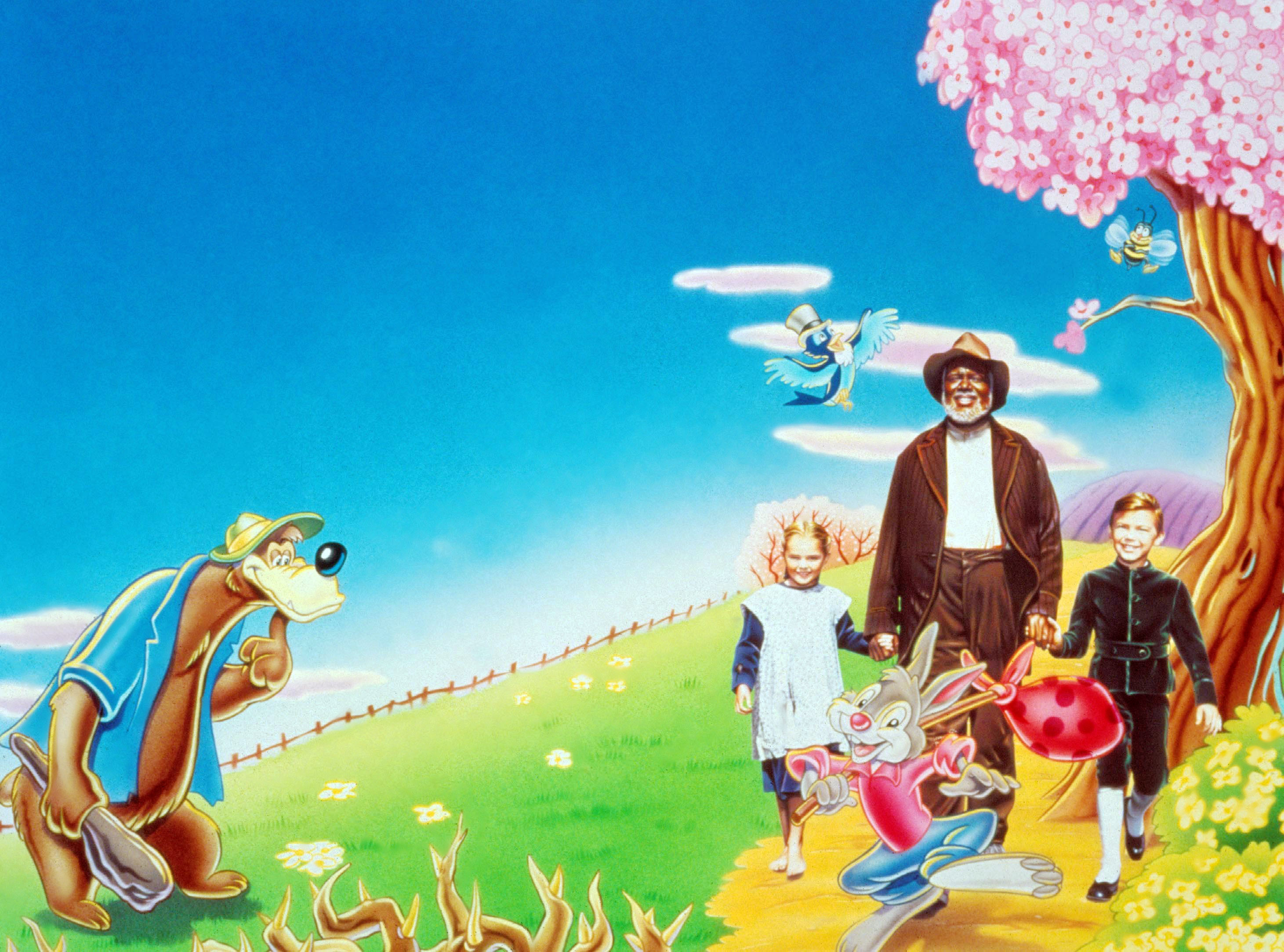 Promotional poster for Song of the South featuring Uncle Remus
Promotional poster for Song of the South featuring Uncle Remus
Image Credit: Everett Collection (28885)
“Zip-a-Dee-Doo-Dah,” the Academy Award-winning song that originated in “Song of the South,” once enjoyed ubiquitous presence throughout Disney Parks and parades. However, as part of Disney’s ongoing efforts to address and remove controversial elements associated with the film from its properties, the song has been systematically phased out. Most recently, it was removed from the daily Magic Happens parade at Disneyland in California. Prior to this, Disney had already removed it from the Festival of Fantasy parade at Magic Kingdom in Walt Disney World the previous year. This deliberate removal underscores Disney’s commitment to distancing itself from the problematic aspects of “Song of the South,” even concerning elements that were once widely celebrated and considered part of the Disney magic.
The Magic Happens parade, which made its return on February 24, 2023, after an extended hiatus, now features a song from the 1953 Disney classic “Peter Pan” in place of “Zip-a-Dee-Doo-Dah.” This substitution reflects a broader curatorial shift within Disney Parks entertainment, prioritizing content that aligns with contemporary values and sensitivities while still maintaining the enchanting atmosphere expected by park visitors.
Disney+’s Firm Stance: No Streaming for “Song of the South”
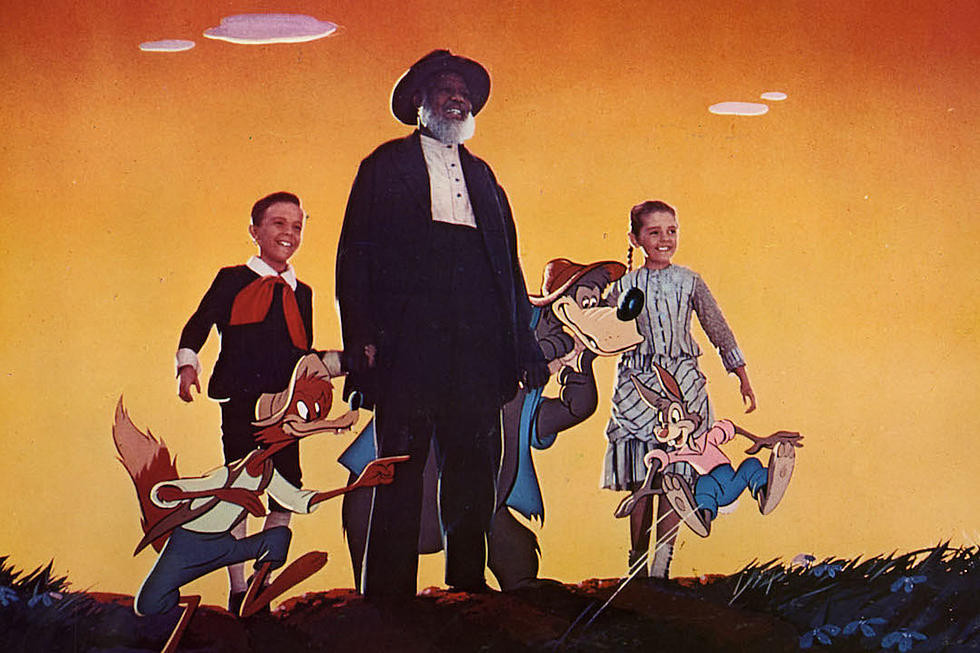 Still image from Song of the South
Still image from Song of the South
Image Credit: Disney
Unlike several Disney titles on the Disney+ streaming service that are accompanied by content warnings addressing “outdated cultural depictions,” “Song of the South” faces a complete and unwavering exclusion from the platform. This decision signifies a more definitive stance compared to other potentially sensitive content in Disney’s library. Even with the option of adding a disclaimer, which Disney has utilized for other films, “Song of the South” is deemed unsuitable for streaming distribution in the current media landscape.
Disney CEO Bob Iger addressed this issue directly in 2020, coinciding with the initial rollout of classic titles on the Disney+ platform. During a Disney annual shareholder meeting, responding to audience inquiries about content availability, Iger unequivocally stated that “Song of the South” is “not appropriate in today’s world” and, therefore, will not be re-released in any format, including streaming. This firm declaration reinforces Disney’s position that the film’s problematic representations outweigh any potential historical or artistic value it might possess for contemporary audiences.
A Deliberate Absence: Why “Song of the South” Remains Unseen
 Still image from Song of the South
Still image from Song of the South
Image Credit: Moviestore/Shutterstock
Disney chief Bob Iger has further elaborated on the decision to keep “Song of the South” unavailable, stating that the film “wouldn’t necessarily sit right or feel right to a number of people today.” However, this decision is not without counterarguments. Some voices have advocated for Disney+ to include the movie, not as an endorsement of its content, but as a historical artifact that can be viewed and discussed within a critical context. This perspective suggests that suppressing the film entirely might be a form of historical revisionism, preventing opportunities for education and dialogue about problematic representations in media.
The late Hollywood historian Cari Beauchamp, in an interview with The Guardian, argued for the film’s inclusion on Disney+ with appropriate context. Beauchamp stated, “To not include it is to pretend it doesn’t exist. They do exist and they need to be put in context: when was it made? What world was it reflecting? Disney loves being praised for having princesses that are from diverse backgrounds, but you have to look at the whole history.” This viewpoint emphasizes the importance of confronting uncomfortable aspects of media history to foster a more comprehensive understanding of cultural evolution and representation.
Oscar Recognition for James Baskett: Acknowledging Performance Amidst Controversy
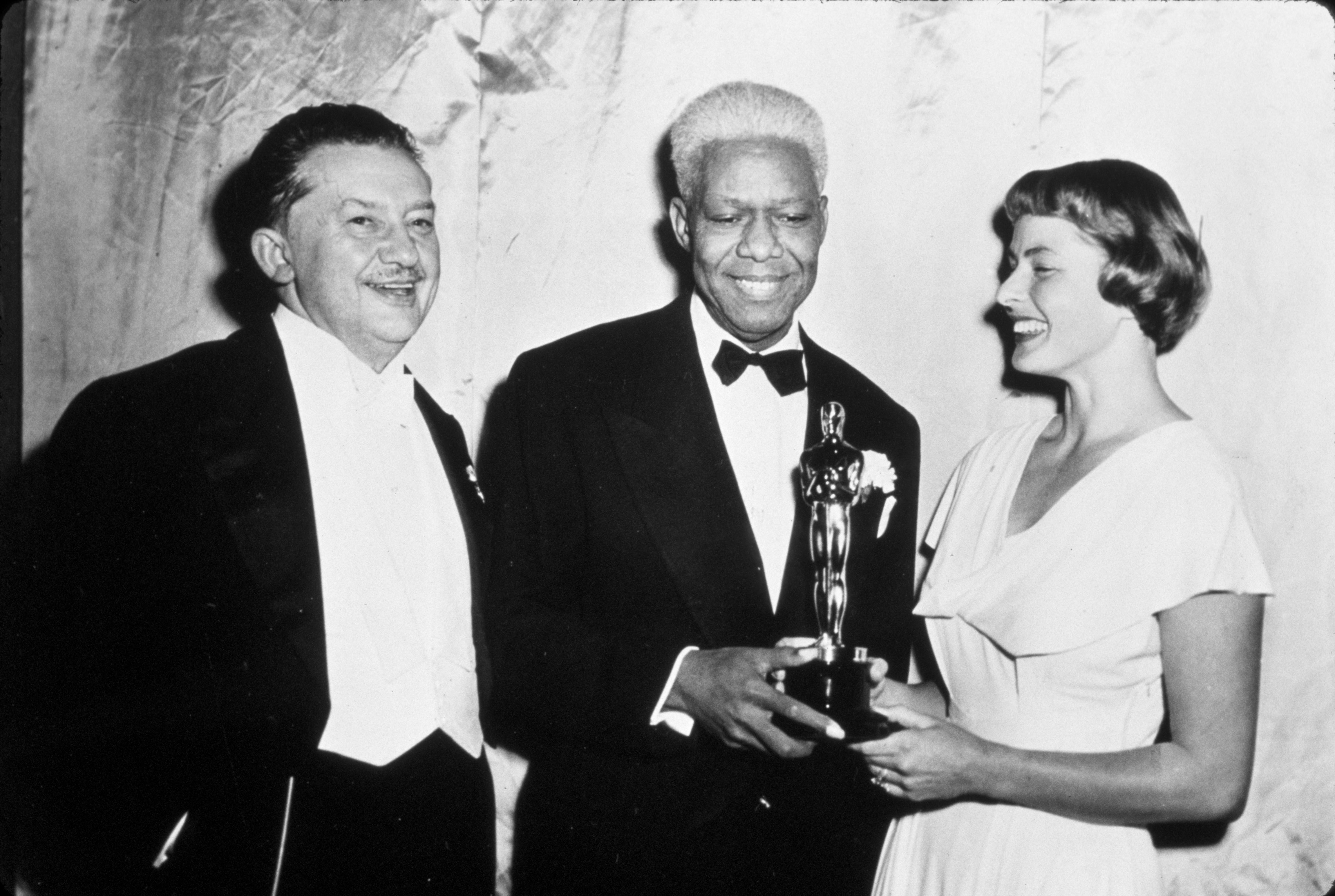 James Baskett receiving his Honorary Oscar for Song of the South
James Baskett receiving his Honorary Oscar for Song of the South
Image Credit: Snap/Shutterstock
James Baskett’s portrayal of Uncle Remus in “Song of the South” earned him an Honorary Academy Award in 1948. His performance was lauded for its warmth and charm as he embodied the character who imparts life lessons to young Johnny, played by Bobby Driscoll, who relocates from Atlanta to his grandmother’s plantation. The character of Uncle Remus, derived from the collections of Joel Chandler Harris, has been identified as an archetype of the “Magical Negro” trope, a recurring figure in Hollywood narratives. This trope often depicts Black characters existing primarily to assist and guide white protagonists, sometimes at the expense of their own agency and complexity. Baskett received his Oscar in March 1948 but tragically passed away later that year due to complications from diabetes, adding a layer of poignancy to his recognition for this controversial role.
“Zip-A-Dee-Doo-Dah”: From Oscar Winner to Disney Pariah
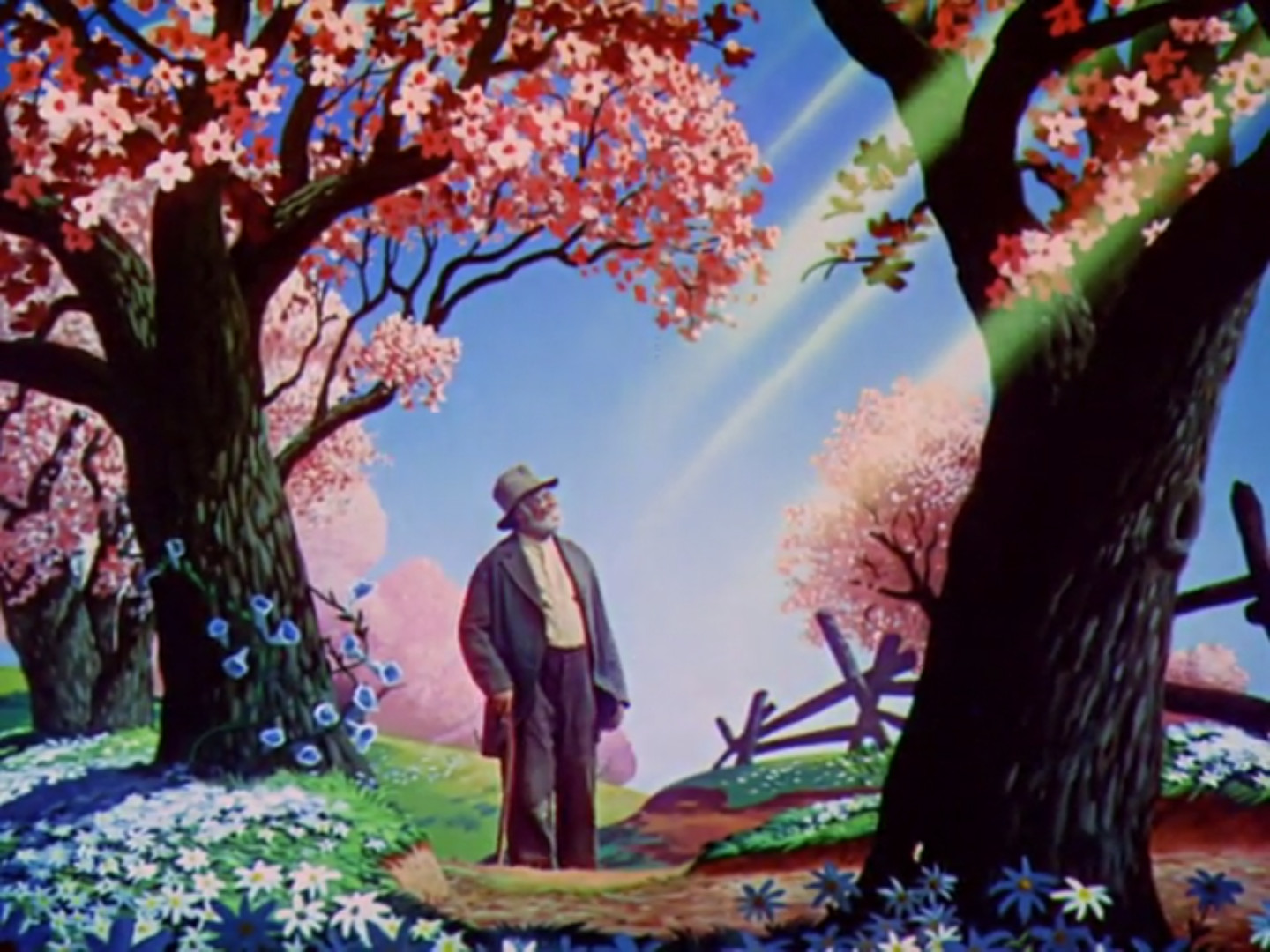 Uncle Remus looking at the sun in Song of the South
Uncle Remus looking at the sun in Song of the South
Image Credit: Disney
The infectiously cheerful tune “Zip-a-Dee-Doo-Dah,” composed by Allie Wrubel with lyrics by Ray Gilbert, not only became a Disney signature song but also secured an Academy Award for Best Original Song. Its upbeat melody and optimistic lyrics about finding the bright side of life contributed to its enduring popularity and integration into Disney’s musical lexicon. However, its inextricable link to “Song of the South” has ultimately led to its downfall within Disney Parks and entertainment, as the company seeks to distance itself from the film’s problematic legacy. The song’s journey from Oscar glory to park exclusion illustrates the evolving cultural understanding and sensitivity surrounding the film and its associated elements.
NAACP’s 1946 Critique: Early Recognition of Problematic Themes
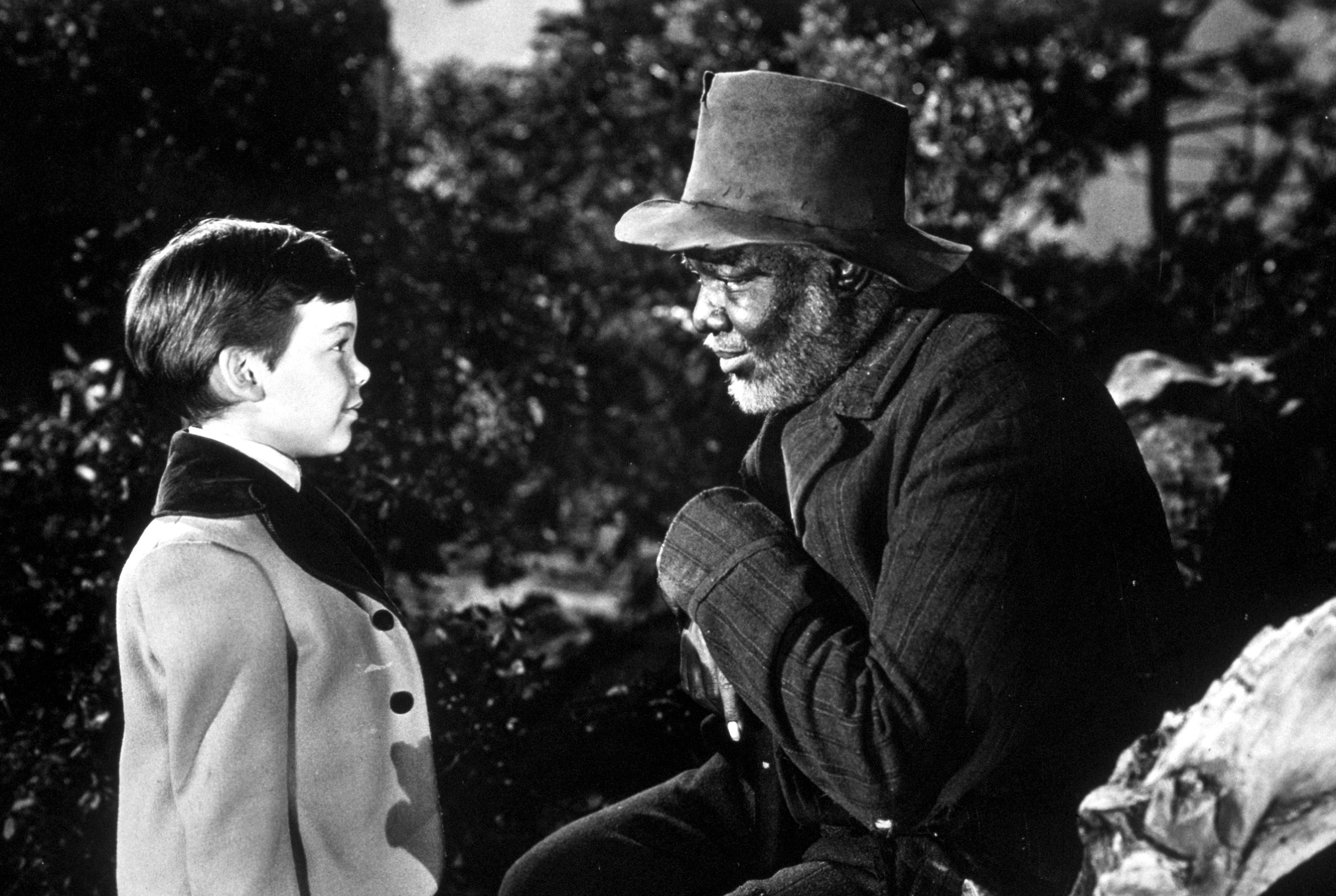 Animated characters from Song of the South
Animated characters from Song of the South
Image Credit: Snap/Shutterstock
Even upon its initial release in 1946, “Song of the South” faced criticism from the NAACP. While acknowledging the film’s technical achievements and innovative blend of animation and live-action, the organization issued a statement expressing concerns about its racial representations. The NAACP stated that it “regrets, however, that in an effort neither to offend audiences in the North or South, the production helps to perpetuate a dangerously glorified picture of slavery … [the film] unfortunately gives the impression of an idyllic master-slave relationship, which is a distortion of the facts.” This early critique highlights that the controversy surrounding “Song of the South” is not a recent phenomenon but has been present since its inception, with contemporary audiences and critics echoing similar concerns about its historical inaccuracies and romanticized portrayal of the antebellum South.
Splash Mountain’s Origins: Rooted in “Song of the South”
 Entrance to the Briar Patch gift shop near Splash Mountain at Walt Disney World featuring Brer Rabbit
Entrance to the Briar Patch gift shop near Splash Mountain at Walt Disney World featuring Brer Rabbit
Image Credit: John Raoux/AP/Shutterstock
The characters, songs, and settings of “Song of the South” directly inspired the creation of Splash Mountain, a beloved log flume ride that became a signature attraction at Disneyland and Disney World. Launched in 1989, Splash Mountain drew heavily from the film’s animated segments, featuring Br’er Rabbit as the central character and incorporating the antagonists Br’er Fox and Br’er Bear. The ride effectively translated the animated world of “Song of the South” into a thrilling and immersive theme park experience, contributing to its enduring popularity. However, as sensitivities surrounding the film’s racial depictions grew, the ride’s connection to its problematic source material became increasingly untenable, ultimately leading to its reimagining as Tiana’s Bayou Adventure.
No Home Video Release in the US: Continued Inaccessibility
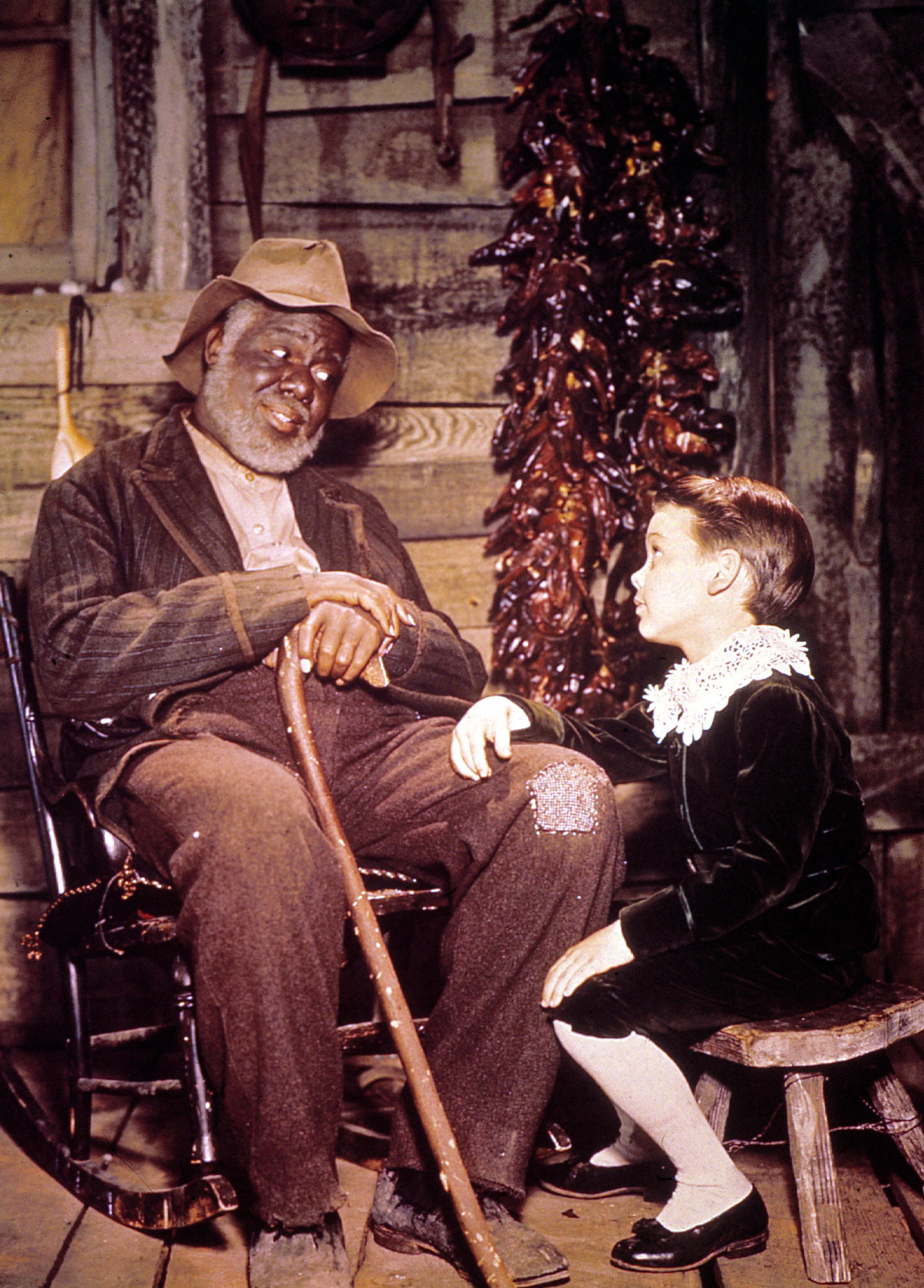 James Baskett and Bobby Driscoll in Song of the South
James Baskett and Bobby Driscoll in Song of the South
Image Credit: Moviestore/Shutterstock
“Song of the South” has never been officially released on home video in the United States, further contributing to its inaccessibility and semi-mythical status. In 2019, Disney CEO Bob Iger reiterated the company’s stance, stating that “it wouldn’t be in the best interest of our shareholders to bring it back, even though there would be some financial gain.” This decision underscores Disney’s prioritization of brand image and social responsibility over potential profits from re-releasing the controversial film. While VHS and LaserDisc versions of “Song of the South” were released internationally, the film remains unavailable for domestic purchase or rental, cementing its place as a deliberately obscured chapter in Disney’s history within the American market.
Divided Black Press: Varied Reactions in 1946
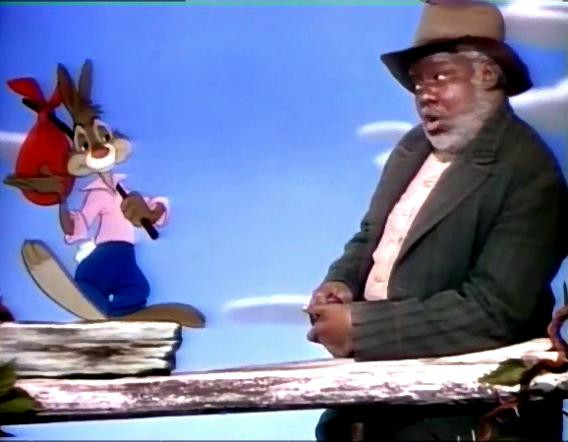 Brer Rabbit character from Song of the South
Brer Rabbit character from Song of the South
Image Credit: Disney
Initial reactions to “Song of the South” within the Black press were not monolithic, revealing a spectrum of opinions and perspectives in 1946. While Richard Dier of The Afro-American strongly condemned the film as “as vicious a piece of propaganda for white supremacy as Hollywood ever produced,” other voices offered more nuanced or even positive assessments. Herman Hill, a former USC basketball player, civil rights activist, and journalist for The Pittsburgh Courier, argued that the film could “prove of inestimable goodwill in the furthering of interracial relations.” Hill dismissed criticisms as “unadulterated hogwash symptomatic of the unfortunate racial neurosis that seems to be gripping so many of our humorless brethren these days.” This divergence in opinions within the Black press at the time highlights the complexities and varied interpretations of the film’s representations even amongst contemporary African American commentators.
Disney’s Early Unease: Recognizing Potential Controversy
 Promotional image for Song of the South
Promotional image for Song of the South
Image Credit: Disney
Even during the production of “Song of the South,” Disney was aware of the potential for controversy surrounding its subject matter and racial representations. Studio publicist Vern Caldwell communicated these concerns to producer Perce Pearce, stating, “the negro situation is a dangerous one. Between the negro haters and the negro lovers there are many chances to run afoul of situations that could run the gamut all the way from the nasty to the controversial.” This internal acknowledgment of the “dangerous” nature of the “negro situation” underscores that Disney was not oblivious to the sensitivities surrounding the film’s themes and the potential for negative reactions, even at the time of its creation.
Cast Defended the Film: Supporting “Song of the South”
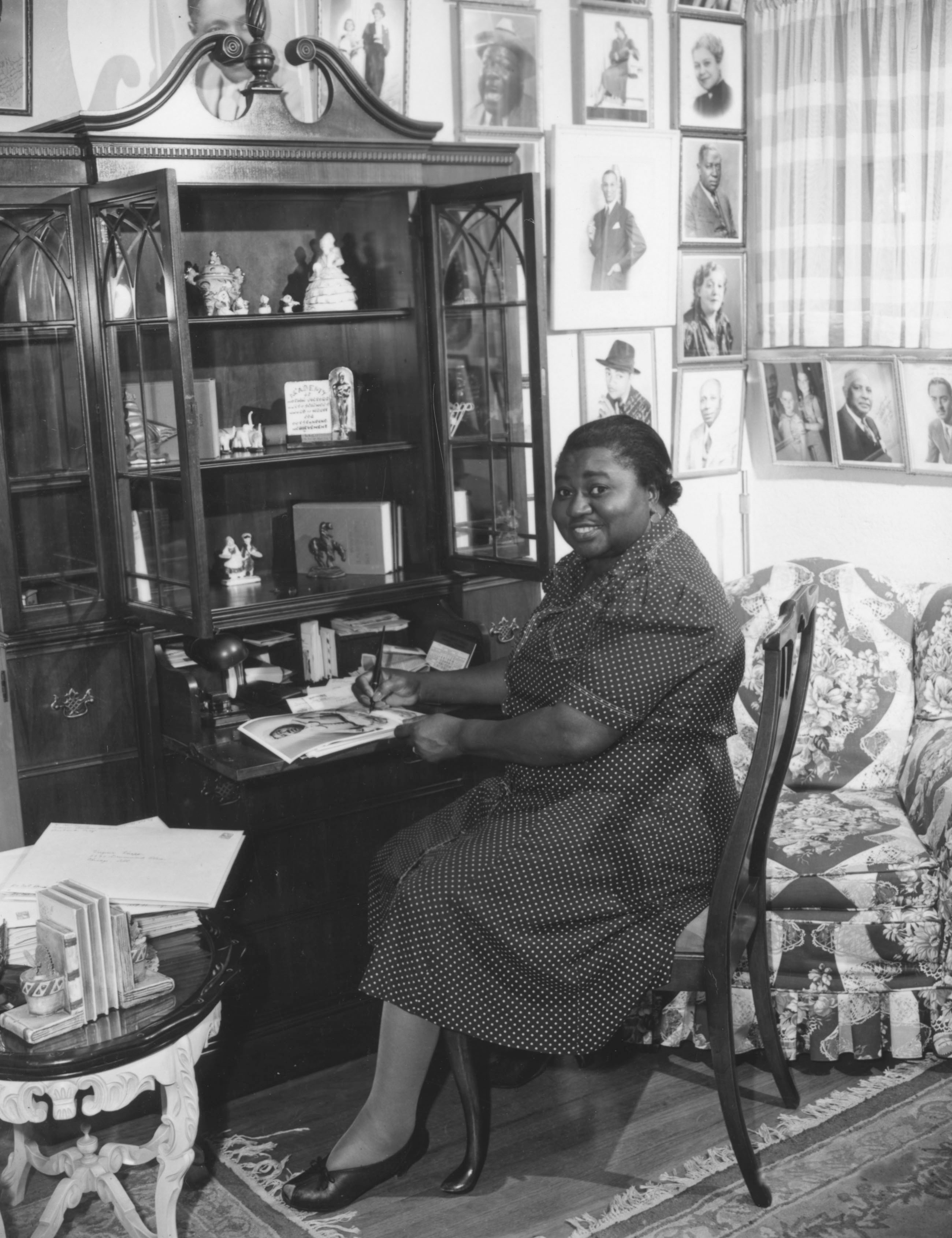 Hattie McDaniel, actress in Song of the South
Hattie McDaniel, actress in Song of the South
Image Credit: Kobal/Shutterstock
The cast of “Song of the South” included prominent Black actors like Hattie McDaniel, who had previously made history as the first African American to win an Academy Award for her role in “Gone With the Wind.” McDaniel and co-star James Baskett publicly defended the film against early criticisms. In a 1947 interview with The Criterion, McDaniel stated, “If I had for one moment considered any part of the picture degrading or harmful to my people, I would not have appeared therein.” James Baskett echoed this sentiment, asserting, “I believe that certain groups are doing my race more harm in seeking to create dissension than can ever possibly come out of the ‘Song of the South.’” These statements from the film’s Black cast members offer a perspective that contrasts with later criticisms, reflecting the diverse opinions and experiences surrounding the film at the time of its release and in the years immediately following.
Box Office Success Across Decades: Enduring Popularity
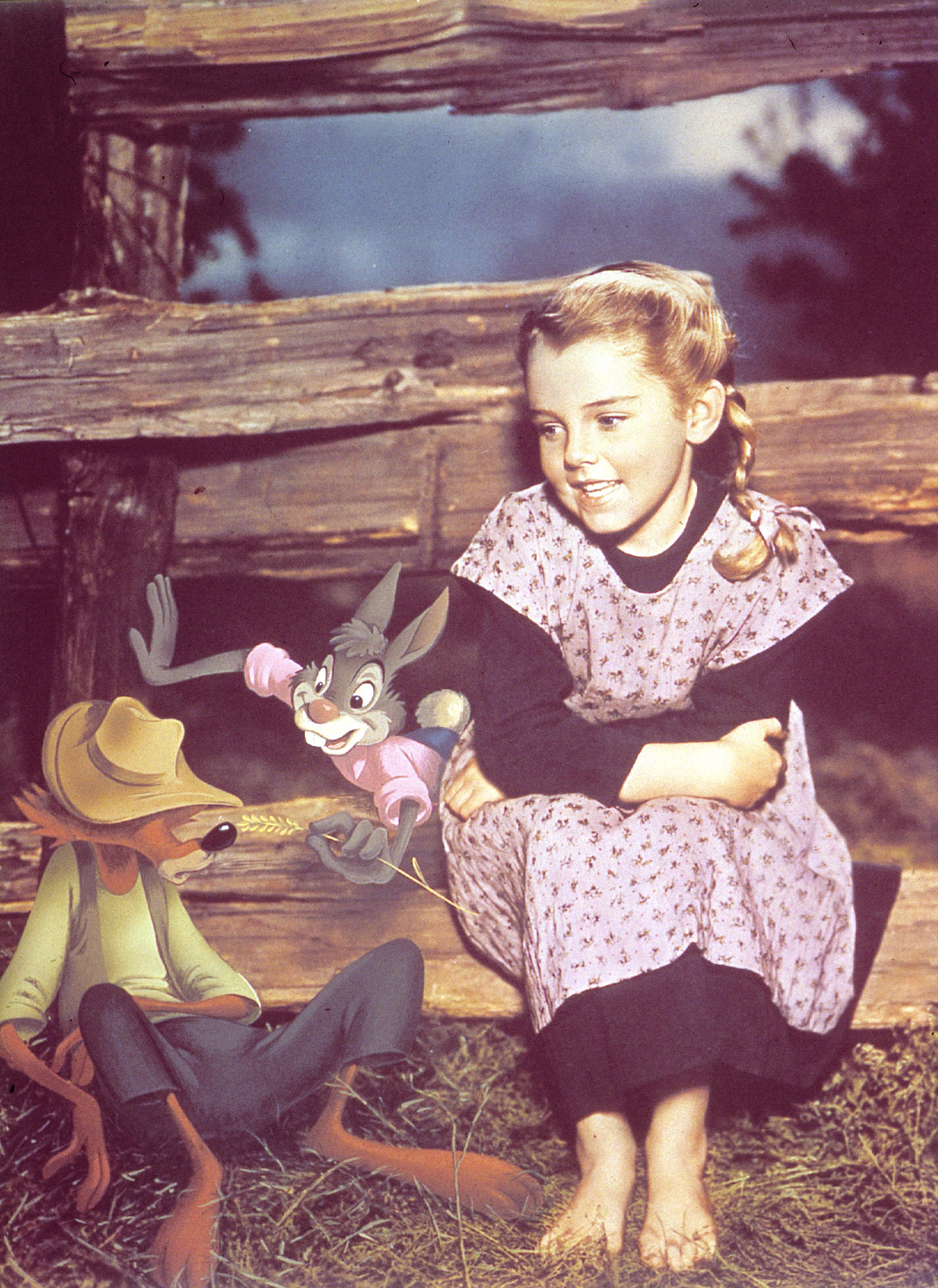 Luana Patten in Song of the South
Luana Patten in Song of the South
Image Credit: Moviestore/Shutterstock
Despite the early controversies and criticisms, “Song of the South” proved to be a significant box office success, not just upon its initial release but also in subsequent re-releases. When Disney began re-releasing many of its classic animated titles in theaters during the 1980s to capitalize on nostalgia, “Song of the South” was included and continued to resonate with audiences. Even four decades after its initial release in 1946, the film generated over $17 million during its 1986 theatrical re-run, demonstrating its enduring appeal and profitability for Disney. This box office success, even in the face of ongoing controversy, highlights the complex relationship between commercial viability, cultural impact, and critical reception in the history of “Song of the South.”

